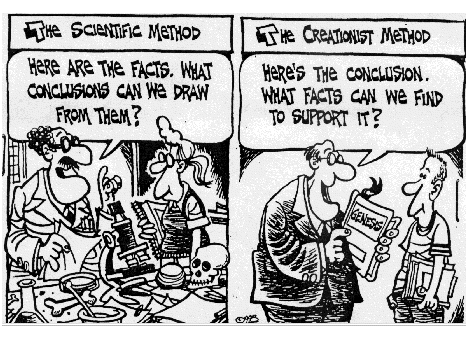Interlude: Obama’s “New Draft”?
The upcoming Obama administration has created a website called the Office of the President Elect. On the site, the administration announces its intention to require/encourage community service among high school and college students. (Per the website, the administration would require 50 hours of community service from high schoolers and 100 from collegiates.)
Because the language smacks of conscription, conservatives like Greg Mankiw are crying out against it, going so far as to call it “a new draft”.
I can understand where these conservatives are coming from. Really, I can. Community service? As in service to the community ? That’s going a bit far. I mean, these poor kids are already required to learn basic mathematics and how to read! How far will they be pushed against their free wills?
We should let these kids choose for themselves. I propose that, as a first step, we let them opt out of learning anything about economics. Then they can choose their way out of mathematical literacy, out of appreciation of poetry and painting, out of the ability to discriminate a valid argument from a bogus one. And we won’t rest until the whole nation has opted itself into the kind of ignorance, apathy, and self-consumption that conservatives advocate. Oh, glorious!
What’s happening here is that conservatives, embittered by Obama’s election and the severe fragmentation of their party and their worldview, are falling back on their oldest ace: their threatened freedoms. (Interesting, isn’t it, that these “threats” never bloom into realities? As the Bush administration demonstrated, conservatives never see the real danger coming.)
That’s the twisted reasoning that can put a perfectly healthy proposal for mandatory community service to the plucking of healthy men and women from the domestic resource pool to put their lives at risk in the course of dubious and outrageously costly wars.
It’s strange: conservatives see the word “require” and they’re immediately up in arms. But where were they when their sometime golden-boy Bush was brushing aside the Constitution to bug the phones and computers of American citizens? Where were they when the Bush administration locked away crucial documents concerning his pappy and Ronald Reagan? Where were they when he was lying to the American public left and right in his service to an agenda the goal of which is still not clear to those whom he was morally and legally bound to represent to the best of his ability?
As a college student, I am always looking for community service opportunities, and I wish they were more frequent. I hope the Obama administration comes up with some good stuff for us.
Why You Should Be Suspicious of Intelligent Design Theory
At the risk of preaching to the choir, I want to make some remarks on intelligent design (ID) theory. Specifically, I want to share why a person should be wary of ID, even before s/he knows anything about its gruesome details.
There are two general reasons to mistrust it from the outset.
First, ID offers no positive evidence in its own favor. In fact, anyone who has ever read an ID argument knows that all of their arguments are arguments against evolutionary theory.
Let’s think about this. Suppose I want to prove that my friend Tom is in the kitchen. Will it suffice if I demolish all the arguments in favor of Tom’s being in the living room? Of course not! All I have shown is that there is no reason to believe that Tom is in the living room. I have given no reason to believe that he is in the kitchen.
Of course, showing that there is no reason to think that Tom is in the living room would suffice to prove that he is in the kitchen, provided that it is known beforehand that Tom must be either in the kitchen or in the living room. However, if there is any chance that Tom is in the bathroom, or the bedroom, or the garage, then we cannot justifiably restrict the alternatives. This is called “false dichotomy” and is an illegal maneuver in logic.
ID theory is one enormous false dichotomy. Its proponents believe that, if they can poke enough holes in evolutionary theory, they will have “demonstrated” that their deity exists and is responsible for the design and creation of the world and its living forms.
In the first place, it should be noticed that this strategy rather too conveniently absolves ID theorists of the normal scientific responsibility of rigorously and repeatedly testing any claim about how the world works. In the second place, as David Hume pointed out long ago, even if ID proponents did manage to demolish evolutionary theory, this would not necessarily establish the existence of an intelligent designer, and it certainly would not demonstrate the existence of a particular deity, such as Yahweh, Christ, or Allah. Indeed, it could just as easily be used to prove that our universe is an experiment being conducted by extraterrestrials as that it was created with loving care by God.
The second general reason to mistrust ID theory from the outset is that it is ex post facto in its nature. ID theory is an attempt to justify a set of beliefs that were around long before the need to justify them was felt or the means of justifying them had been developed.
In contrast to a scientifically derived theory, such as evolutionary theory, which is initially surprising and even offensive to popular sensibility but nevertheless prevails on the strength of the evidence, ID theory fits all too comfortably in the worldview of traditional Christians to believe that they are doing anything more dignified or professional than manufacturing “reasons” for believing what they would believe even without those “reasons”.
In other words, ID theory is never the result of putting the hypothesis of an intelligent designer to the test of public and repeatable experiment. Instead, it stems from the desire of a religious faction to subordinate the world to its beliefs, rather than its beliefs to the world.
God’s Big Chance
As this historic presidential election wallows in its eleventh hour, it grows bigger with meaning. Another layer of significance has been added, this one perhaps trumping all the rest.
You see, with this election the stage has been set for the Almighty to demonstrate his existence and potency once and for all.
Who dared set the stage thus for the Omnipotent? The faithful themselves, of course. All across America, prayers are being whispered and shouted for God to put the “right man” in the Oval Office.
One Pam Olsen, co-pastor with her husband of a church in Florida, insists to her fellow believers that
[w]e have just days to pray that someone who upholds the sanctity of life and marriage between one man and one woman will win.
Olsen also urgers anyone who will listen to implore “the Lord to move in swing states”.
This puts believers (and God!) in a mildly interesting but not necessarily favorable scenario. What happens when Obama wins and perhaps goes on to push for pro-gay-marriage or pro-choice legislation? Will Olsen and her ilk come to the unavoidable conclusion that God either respects the right of gay and lesbian couples to marry and of a woman to choose or would allow this “evil” to persist, in spite of the fervent pleading of his “elect”? Either way, conservative Christianity receives another well-deserved blow.
Of course, if their greatest fears should come true, these Christians will most likely resort to their stock rationalizations, e.g., men are exercising their free will to pursue the lusts of the flesh, the End Times are coming, etc.
So if McCain wins, then this will be evidence that God is in control and the prayers were answered. But if Obama wins, then this will be evidence that – what?
That God is in control, even though the prayers were not answered?
This is another example of the non-falsifiability of religious claims. Why are they non-falsifiable? Because they are not connected in any way to the world as it really is. If they were, then it would be possible, at least in principle, to delegitimate them, even in the eyes of those who hold them most dearly.
This non-falsifiability is quite contrary to the spirit of the story of Elijah on Mount Carmel, where God sent fire from the sky in a drastic, and drastically empirical, demonstration of his power. Because history is written by the winners, we have no inkling what Elijah’s response would have been if Yahweh’s offering had not been consumed but Baal’s had.
I have a feeling we’ll get an inkling when Obama gains the presidency. Furthermore, I have a feeling it will make no sense at all.
Insights into Religion and Atheism
Around 1940, philosopher A.N. Prior put the following words, concerning religious people, in the mouth of a psychoanalyst in a dialogue called “Can Religion Be Discussed?”:
But a time may come […] when circumstances will push them into an emotional crisis in which they will go mad unless they do something about it, and then in the painful process of their own analysis they will see for themselves the roots of their urge to believe. Only in this way are genuine atheists made. Atheists by pure persuasion are usually, perhaps always, afflicted with a guilty conscience; the urge to believe is still in them, and they either try to quench it by becoming violent or unfair in their attacks on religion, or try to satisfy it by inventing milk-and-water religions […], using religious language to describe anything they find impressive or moving or mysterious.
Interlude: Another Great Depression?
Harvard economics professor Greg Mankiw weighs in on the question.
Interlude: Doomsday for the Banana?
For those of us in the U.S., this is bad news. But for people in less developed countries, where bananas are a nutrional staple, this is really, really bad news.
Find out more about the beleagured banana in David Koeppel’s book “Banana: The Fate of the Fruit That Changed the World”. Also, you can visit Koeppel’s banana blog, where you can learn more about bananas than you wanted to know, or even thought there was to know. (Seriously.)
Come to think of it, this banana doomsday shouldn’t come as a surprise. I think the Reverend David Jeremiah found a prediction of it encrypted in the Book of Revelation.

